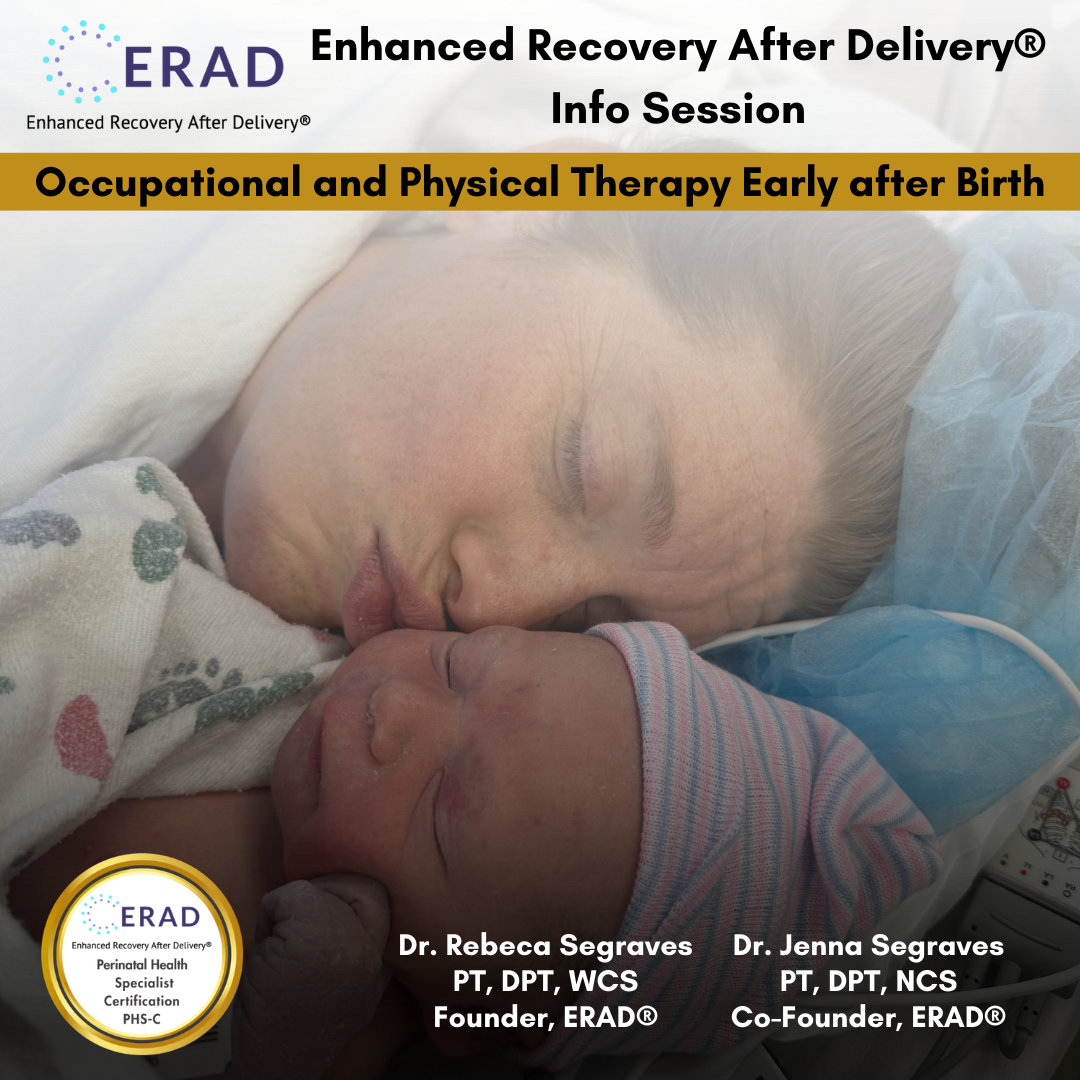
Occupational and Physical Therapy Early After Birth: ERAD® Info Session
Who are the leaders advancing early postpartum rehab in U.S. hospitals? On Tuesday, March 3rd, we will meet the clinical leaders behind hospitals that provide occupational and physical therapy services on the maternity unit prior to discharge. This live event will feature representatives from facilities listed in the Postpartum Recovery Hospital Directory, a growing national database of institutions offering inpatient rehabilitation after birth. Each leader will briefly introduce: • Their facility and setting• The structure of their postpartum rehab services• How referrals are generated on the maternity unit• The role of OT and PT in early recovery• Their purpose for building or sustaining these services This event is designed for: • Hospital administrators• Rehabilitation directors• Acute care therapists• OB service line leaders• Home health and outpatient clinicians seeking hospital collaboration We will highlight the 120+ U.S. facilities currently offering OT and PT services after birth and open the door for future panel opportunities as maternity rehab services continue to expand. Thank you for leading early recovery where it begins. REGISTER HERE
